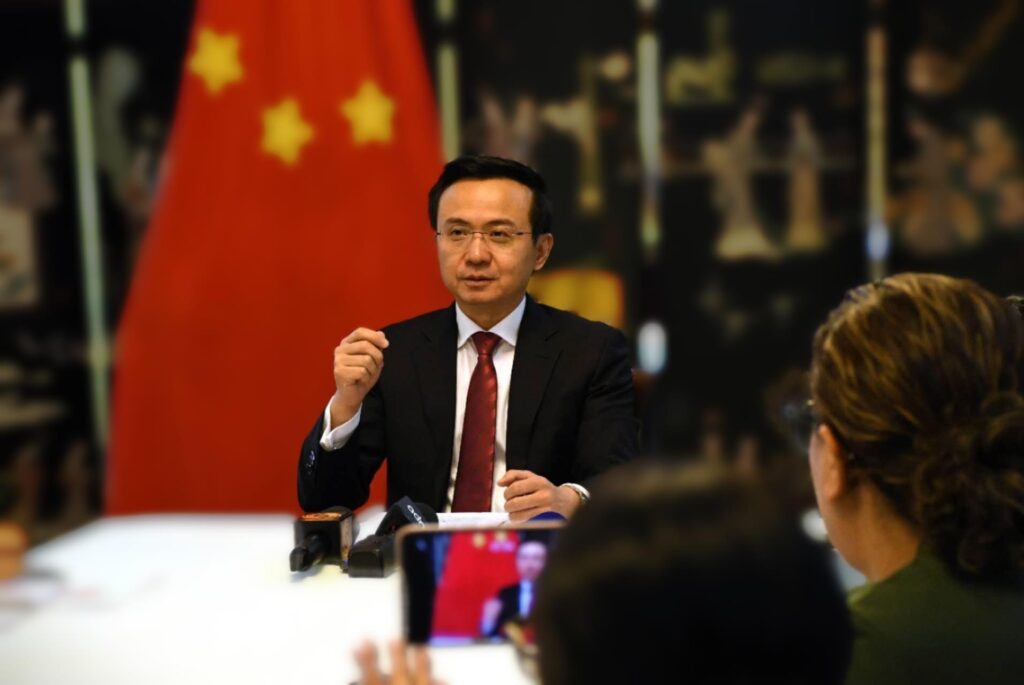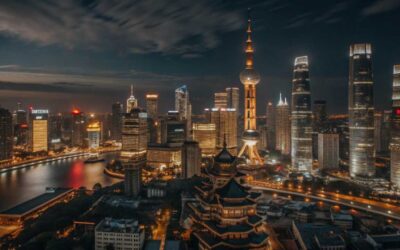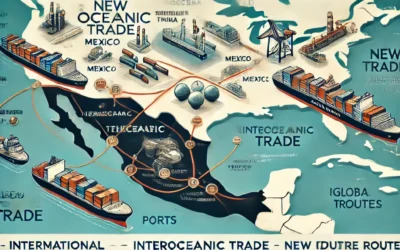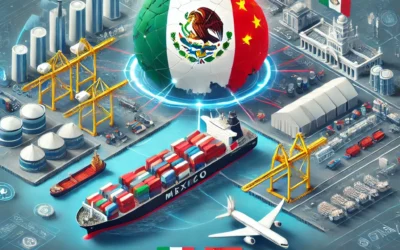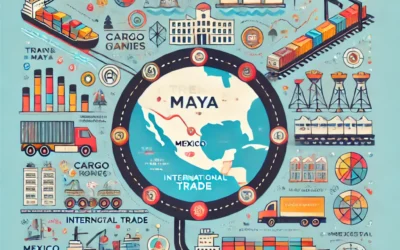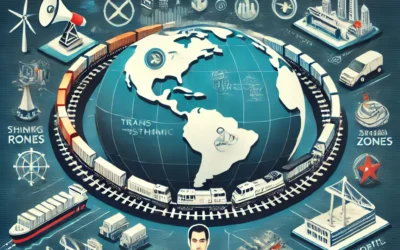-
In recent years, China’s contribution to global economic growth has remained around 30 percent.
-
Regarding certainty, the Decision affirms that China’s modernization is a modernization in terms of following the path of peaceful development.
The headline of this note seems absurd when one observes that in China there is a highly modern infrastructure, that in all areas it has technological advances very difficult to achieve for a large part of the world; however, its authorities have the goal of building a powerful and modern socialist country. Based on this project, the Chinese Communist Party (CCP) held the Third Plenary Session of the 20th Central Committee of the CCP from July 15 to 18. And the results of this were announced by the Chinese ambassador to Mexico, Mr. Zhang Run.

Ambassador Zhang Run briefed on the outcomes of the Third Plenary Session of the 20th Central Committee of the Communist Party of China. (Photo: Chinese Embassy in Mexico).
On July 25th, in a press conference held prior to a reception commemorating the 97th anniversary of the founding of the People’s Liberation Army, the ambassador explained each of the points addressed by the top leaders, who set out the roadmap for the comprehensive establishment of a high-standard socialist market economy with Chinese characteristics by 2035. This means that China will have basically achieved the modernization of its system and will have a solid foundation to complete the comprehensive construction of a powerful modern socialist country by the middle of the century.
“The Decision of the Central Committee of the Communist Party of China on Further Deepening Comprehensive Reform to Promote China’s Modernization was examined and adopted. It is worth noting that the Central Committee of the Party took more than seven months to draft this Decision, which contains more than 20,000 words and emphasizes reforms in the areas of economy, politics, culture, society, ecology, national security and defense, and the armed forces. The word ‘reform’ alone appears more than 145 times, ‘development’ 133 times, ‘innovation’ 51 times, and ‘people’ 46 times,» he emphasized.»
Overall objective and principles of the Comprehensive Deepening of Reforms
The overall objective is to establish a roadmap and timetable for reform. We must continuously improve and develop the socialist system with Chinese characteristics and promote the modernization of the country’s system and governance capacity.
By 2035, the comprehensive construction of a high-standard socialist market economy will have been completed, the socialist system with Chinese characteristics will have been further improved, and the modernization of the country’s system and governance capacity will have been basically achieved, with the fundamental realization of socialist modernization, thus laying a solid foundation for completing the comprehensive construction of a powerful modern socialist country by the middle of the century. Specifically, there are seven focuses: 1. The structuring of a high-standard socialist market economy; 2. The development of whole-process people’s democracy; 3. The formation of a culturally strong country; 4. The elevation of the people’s quality of life; 5. The construction of a beautiful China; 6. The construction of a higher-level peaceful China; 7. The increase of both the Party’s leadership level and its capacity for long-term governance.
The reform tasks formulated in this Decision must be completed by 2029, the 80th anniversary of the founding of the People’s Republic of China.
Leadership will continue to be held by the Communist Party of China, with the people as the center, while preserving fundamental principles and innovating, with institutional construction as the main line, with comprehensive law-based governance of the country, and persisting in a systematic perspective.
Key Initiatives for the Deeper Comprehensive Reform that Interest Foreign Friends
It can be briefly explained with three keywords.
First, openness. The Decision identifies openness as the distinctive feature of China’s modernization. It requires that, while maintaining the basic state policy of opening up and promoting reform, we should, through opening up, enhance our capacity for opening up amidst expanding international cooperation and form a new, higher-level open economic regime. We have the following specific initiatives: steadily expanding opening up in systems, deepening the reform of the foreign trade regime, deepening the reform of the foreign investment and outbound investment administration regimes, optimizing the layout of regional opening up, and improving the driving mechanism for high-quality joint construction of the Belt and Road Initiative.
Second, quality. The Decision identifies high-quality development as the primary task of comprehensively building a modern socialist country, emphasizing the need to complete systems and mechanisms oriented towards the development of new-quality productive forces according to local conditions, support enterprises in transforming and upgrading these industries through intelligent digital technologies and green technologies, complete systems to drive the deep integration of the real and digital economies, and complete the system for increasing the resilience and security level of industrial chains and supply chains.
Third, innovation. The Decision indicates that it is necessary to fully implement the strategy of strengthening the country through science and education, strengthening it with excellent human resources, and developing it through innovation, specifically including promoting the opening up of higher education, encouraging the entry of high-level foreign science and engineering universities into China to foster cooperation in terms of educational management, establishing a science and technology financial system that accommodates scientific and technological innovation, facilitating greater foreign capital deployment of investment capital and venture capital in China, and improving the support and guarantee mechanism for introduced overseas talents, an internationally competitive institutional system of qualified personnel will be formed. We will explore the establishment of an immigration system for high-tech personnel.
Why is it said that a reforming and opening-up China will inject new impetus and certainty into the world?
In recent years, China’s contribution to global economic growth has remained around 30%. In the first half of this year, China created 26,870 new foreign-invested enterprises, a year-on-year increase of 14.2%. China’s international market shares in exports and imports have remained the world’s first and second for 15 consecutive years, and its overseas investment has been among the top three in the world for 11 consecutive years, with capital flows covering 155 countries and regions. China’s industrial system, in terms of global scale, degree of completeness, and support capacity, is capable of meeting the needs of the rapid development of social productive forces, contributing to the optimization of the allocation of global production factors and improving global productive capacity. As China’s entire population of over 1.4 billion people moves towards modernization, and its scale surpasses the combined population of the current developed countries, China is destined to give an even greater boost to the global economy.
Finally, Zhang Run expressed that regarding certainty, the Decision affirms that China’s modernization is a modernization in terms of following the path of peaceful development. China has experienced suffering, so it knows better the value of peace and development. China is the only country in the world that has enshrined in its Constitution the adherence to the path of peaceful development, and it is the permanent member of the Security Council that contributes the largest number of peacekeeping forces. Last year, China facilitated the restoration of diplomatic relations between Saudi Arabia and Iran. More than a year later, Palestinian factions held a reconciliation dialogue in Beijing and signed the Beijing Declaration. An academic once said: If all the great powers were like China, the world would be a more peaceful place.
Recently, the president of the Bimbo Group in Asia said in an interview that the Chinese market is strong and dynamic, that its consumption potential is high, that its digital ecosystem is developing rapidly, and that it has made us better. I think it is proof that if China is good, the world will be better. Looking to the future, China’s further deepening of reforms will surely create new opportunities for deepening China-Mexico relations, open up new prospects for the next golden decade for China and Latin America and the Caribbean, and inject new impetus for the common development of all countries in the world.
Author: Irma Villa

